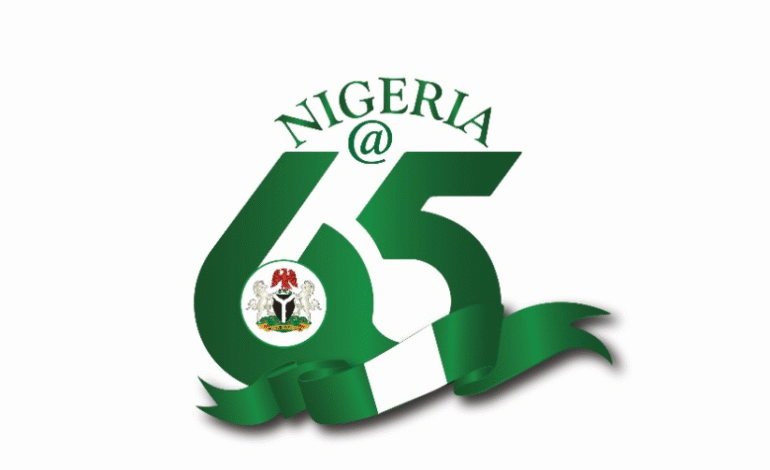It was a day of joy, pride, and patriotism as Nigerians across the United Kingdom, especially those from the North West of England, gathered at the Nigeria House in Manchester on Saturday, October 11, 2025, to celebrate the nation’s 65th Independence Anniversary.
The colourful event, themed “Relax, Tinubu is Fixing Nigeria,” was organised by the Nigerian Community in Greater Manchester under the leadership of Alhaji Kumoye. The ceremony brought together Nigerians and friends of Nigeria from across the UK, who came to honour their homeland and reflect on the nation’s journey of unity, resilience, and hope.
Among the dignitaries present were representatives of the Nigerian government, diplomats, political leaders, community figures, and members of the entertainment industry. The Minister of Interior, Dr. Olubunmi Tunji-Ojo, was represented by Muhammad Abdullah, while the Nigerian High Commission in London was represented by Ambassador Abu Obe Eche. Also in attendance were the APC Chairman in the United Kingdom, Hon. Tunde Doherty; the APC Chairman in Manchester, Hon. David Adeoye; and APC UK chieftains, including Hon. Olanrewaju Agbebi, alongside several prominent Nollywood actors such as Zack Orji and other actresses who added glamour to the celebration.
In his remarks, Ambassador Abu Obe Eche congratulated Nigerians on the milestone and commended the organisers for putting together a successful and inspiring event. He encouraged Nigerians in the diaspora to continue to serve as ambassadors of their country, projecting a positive image and promoting unity. According to him, every great nation admired today has passed through difficult times, and Nigeria’s challenges should be seen as opportunities to innovate and rebuild. He also noted that the Nigerian Government is collaborating closely with the UK authorities on joint security initiatives, which are already yielding positive results and attracting investor confidence.
Speaking with New Daily Prime, the representative of the Minister of Interior, Muhammad Abdullah, highlighted the achievements of President Bola Ahmed Tinubu and the importance of ongoing reforms. He explained that Nigeria’s current economic challenges are not the result of the present administration’s actions, but the consequence of decades of mismanagement and missed opportunities.
He recalled that during the oil boom of the early 2010s, when crude oil sold for over $100 per barrel, Nigeria earned unprecedented revenue but failed to build strong reserves or invest in infrastructure and economic diversification. Instead, political expediency took precedence over prudence. Abdullah cited the rejection by the Nigerian Governors’ Forum, under the leadership of former Rivers State Governor Rotimi Amaechi, of the advice given by then Finance Minister Dr. Ngozi Okonjo-Iweala and President Goodluck Jonathan to save part of the oil windfall in the Excess Crude Account. As a result, he said, the account, which once held over $20 billion, was depleted to almost nothing. When oil prices fell in 2014, Nigeria was left with no financial cushion and had to depend on borrowing to survive.
By the time President Tinubu assumed office in May 2023, Abdullah said, the economy was already on the brink. Over ₦30 trillion had been printed and injected into the system without productivity backing, leading to rising inflation, a weakened naira, and dwindling investor confidence. Ninety-seven percent of federal revenue was being used to service debt, while the Nigerian National Petroleum Company remitted nothing to the Federation Account due to subsidy payments. Much of the country’s crude oil, he explained, had been pledged for future loans.
Abdullah stated that the reforms introduced by President Tinubu were therefore inevitable to prevent total collapse, similar to what occurred in Sri Lanka. Although painful, the policies are beginning to yield results. Inflation, which once peaked above 33 percent, is gradually easing, food prices are stabilising, and the naira has strengthened significantly after a major depreciation. He noted that the government’s foreign exchange reforms, fiscal discipline, and improved revenue collection are restoring investor confidence. Foreign reserves are recovering, oil production has increased, and non-oil exports such as agriculture, solid minerals, and digital services are growing.
He emphasised that the government’s approach is now focused on sustainable growth built on real productivity rather than borrowing. Industrial initiatives such as the Compressed Natural Gas programme, the Renewed Hope Infrastructure Fund, and the revival of the steel sector are stimulating employment and expanding local content. He added that the economy grew by 4.23 percent in the second quarter of 2025, the highest in three years, while confidence and production continue to improve.
Read Also:
Health ministry urges Nigerians to promote eye health in their communities
Wizkid declares himself Nigeria’s number one artist
Tunji-Ojo advocates government-academia partnership to strengthen education
Abdullah also underscored the critical role of young people in Nigeria’s recovery. He explained that under the Federal Ministry of Youth Development, several empowerment and innovation programmes are helping young Nigerians acquire digital, technical, and entrepreneurial skills to drive economic growth. He stressed that youth are not merely beneficiaries of reform but the builders of Nigeria’s renewed economy across sectors such as technology, the green economy, creative industries, and agriculture.
The celebration was also marked by vibrant cultural displays, traditional music, and performances that showcased Nigeria’s rich heritage. Communities including the Igbo Cultural Group, Egbe Omo Yoruba, and the GMen of Manchester Club participated in the event, which many described as a symbol of unity and national pride.
In his closing remarks, Abdullah praised Nigerians in the diaspora for their continued contributions to national development through remittances, investments, and mentorship. He noted that annual remittances now exceed $25 billion, strengthening Nigeria’s balance of payments and supporting countless families across the country.
He urged Nigerians abroad to deepen collaboration with young innovators, invest in homegrown initiatives, and continue to promote a positive image of the nation. “Nigeria’s best days are ahead,” he said. “We must not despair. The reforms are working, and the results are becoming clear.”
The event concluded with a shared sense of hope and renewed patriotism as participants celebrated Nigeria’s enduring spirit, reaffirming their faith in the country’s leadership and future.



